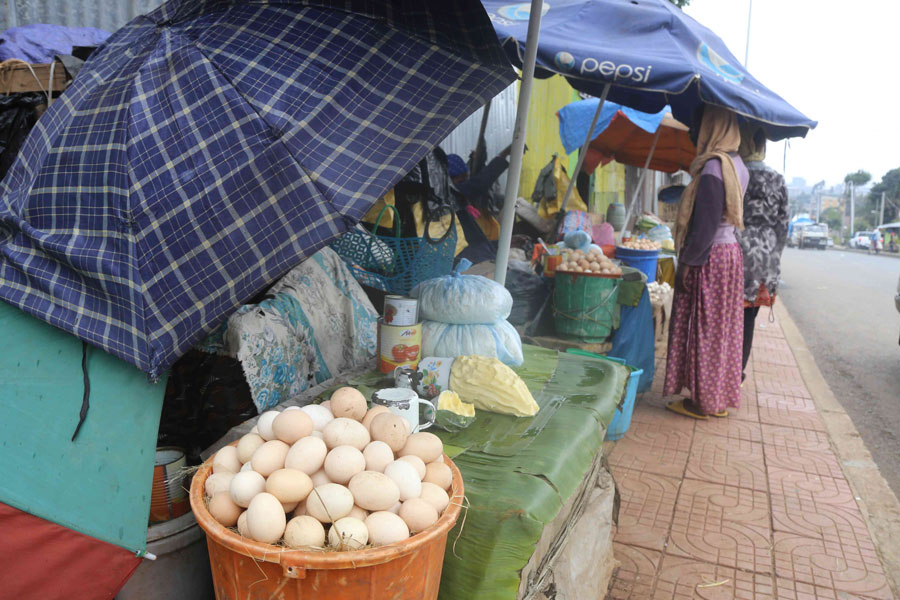
Agenda | Jun 10,2023
On the afternoon of Wednesday, July 8, 2020, the Kelifa Building near Atikilt Tera was unusually brimming with automobiles. A bizarre scene to be sure, all the windows of the vehicles queued up in the area were wholly or partially smashed.
The vehicles were waiting their turn for the repairmen to come and fix their glass windows. The automobile windows were shattered by protesters following the death of Hachalu Hundessa, a famous Afaan Oromo singer and public figure.
Starting the morning after the singer was gunned down, thousands of angry youth holding stones and sticks had looted properties in the capital including buildings and vehicles they found in their way.
The incident that lasted for hours claimed the lives of 12 people in the capital - two police officers and 10 civilians. A total of 75 people, including police officers, also sustained heavy injuries, while 283 more citizens suffered less serious injuries.
Thirty-nine vehicles, of which 36 are owned by individuals, two public, and one that belongs to a company, were burned completely, according to Fasika Fenta (Com), communications director at the Addis Abeba Police Commission.
A total of 361 vehicles - 286 private, 43 owned by organisations, 18 public, and 14 yet to be verified - also sustained lower levels of damage.
Owners and drivers of automobiles whose windows were damaged by the attackers were busy last week negotiating with glass dealers at Atikilt Tera and with window repairmen.
Adane Teshale was also waiting for his Toyota Vitz to be fixed by two workers. His vehicle was smashed by protesters along with 11 other cars around Bole Arabsa Condominium on the morning of June 30, 2020. The dorsal window of Adane’s automobile, which was purchased five years ago, was destroyed with stones.
“Most of the cars parked there had almost all of their windows smashed," he said, "but I was lucky that only the back window of my car was shattered by the attackers."
Adane spent 4,700 Br to fix his car window, which was never shattered or fixed before. He bought the glass from the nearby shops for 4,500 Br and paid 200 Br to the repairmen.
Following the protests, rioters smashed the windows of 458 buildings across the capital.
Overall, the riot led vehicle and building window sales to spike by three to four fold.
Ashenafi Madebo, owner of Ashu Auto Glass Shop at Merkato, also recognised the current spike in sales. Ashenafi, who used to sell four to five pieces of automobile glass a day, is now selling 22 to 26 units of glass.
Ashenafi imported 600 units of automobile glass from China in early April, but he is already almost out of stock following the latest spike in demand for his product.
The situation has not only benefited glass dealers but also repairmen, including Jara Adugna, an automobile glass repairman at Merkato in Somali Tera. Jara, a father of two, depends on the income he gets from fixing automobile windows. He used to make 400 Br to 600 Br a day by fixing two to three cars.
“Although it's temporary, business is good these days,” said Jara, who is now fixing eight to 10 automobiles a day, making around 3,000 Br in revenues.
Before the recent spike, the automobiles that were coming to be fixed were slightly damaged, but now the vehicles are arriving almost wholly damaged, according to Jara.
He repairs an automobile for 700 Br to 1,000 Br if all of the windows of a vehicle are fully damaged.
This has also resulted in a favorable effect on the income of plaster dealers in the city. Dawit Tesfaye, who works in Megenagna, has recognised the spike.
Dawit sells repairing materials such as plastic plasters, liquid plasters and razors that are used by repairmen to fix automobile glass. Before the Hachalu riots, he was selling five to seven plastic and liquid plaster containers and around 10 razors a day.
“Currently, I’m selling 15 to 20 plaster units and 15 razors a day,” Dawit told Fortune.
The looting also left many buildings in the capital with full or partial window damage, leading many owners to invest a huge amount of money in repairs.
The protesters shattered the windows of 458 buildings across the capital - 291 of which are owned by individuals, while 73 and 21 buildings belong to organisations and the public, respectively. The owners of 73 buildings are yet to be identified.
Henok Mekonnen, the owner of a supermarket called Farmers Market, as well as Food Zone Restaurant & Bar, has spent 90,000 Br to repair the shattered glass windows at his establishments. The glass windows of the business that is located on Cameroon Street close to Bole International Airport in Bole Medanialem, were completely shattered by the protesters on Tuesday morning of June 30, 2020.
The establishment, which started operation eight months ago, has 18 glass windows that were fully shattered.
“We've lost around 100,000 Br worth of property,” Henok told Fortune.
The vandalism was a torment for the owners of buildings but a blessing to glass dealers. Window sellers are now seeing huge demand for their products.
Kamil Shemsedin, the owner of Kamil Glass Importer & Distributer near St. Urael Church, is one who has witnessed the increasing flow of customers. He used to sell 10 glass windows, each a square metre in size. Currently, Kamil, who has two employees, is selling around 15 windows a day.
Kamil imports glass windows from China, Saudi Arabia and Egypt every three months and sells each window from 1,500 Br to 3,000 Br depending on the quality.
The damage to properties was unbearable for owners who were already barely making it. Some are even incapable of fixing their properties with their current income and are appealing to dealers to sell them the glass on credit.
Alexander Bitew, who depends for his livelihood on the income he generates from his rented taxi, was one of the victims of the fateful incident that began two weeks ago. He rented the taxi five months ago for 1,500 Br a week.
The incident left the front and the back windows of the taxi fully shattered, which he is supposed to replace at his own expense.
Alexander pleaded with a glass dealer in Megenagna to sell him the window on credit, promising him that he will pay the value within three months.
“He agreed, and I'll pay him 7,000 Br in three tranches,” Alexander told Fortune.
In the coming weeks the price of glass sheet will definitely spike, according to Atlaw Alemu (PhD), an associate professor of economics at Addis Abeba University.
“As all the glass sheets used for windows and vehicles are purely imported, the sector is characterised by fixed supply,” said Atlaw. “The fluctuations in demand are deemed to bring market instability that may hurt the construction and transportation sectors.”
During the last fiscal year, Ethiopia spent close to three billion Birr to import 104,706tn of glass and glassware.
The government should encourage domestic production and import substitution by incentivising potential glass manufacturers, recommended Atlaw.
The country is bestowed with sandstone minerals that are the main inputs for glass manufacturing, and there is a viable market for glass products, according to the expert.
Ethiopia has nine factories that are involved in the business of making different types of glass. Three of the factories - Juniper Glass Industries, Addis Abeba Bottle & Glass Company, and Ethio-Hunssen International Glass Plc - manufacture glass for household uses, and the six other factories produce fiberglass.
Out of all the manufacturers, only Ethio-Hunssen, which makes 57tn of flat glass a day, makes glass sheet used for windows. Juniper Glass Industries and Addis Abeba Bottle & Glass Company manufacture 99tn and 65tn of glass a day, respectively.
“The limited capital of domestic investors is the main problem that curtailed the country from manipulating the resources into production,” he said. “Thus the government should work on absorbing foreign direct investments for the sector.”
PUBLISHED ON
Jul 13,2020 [ VOL
21 , NO
1055]

Agenda | Jun 10,2023
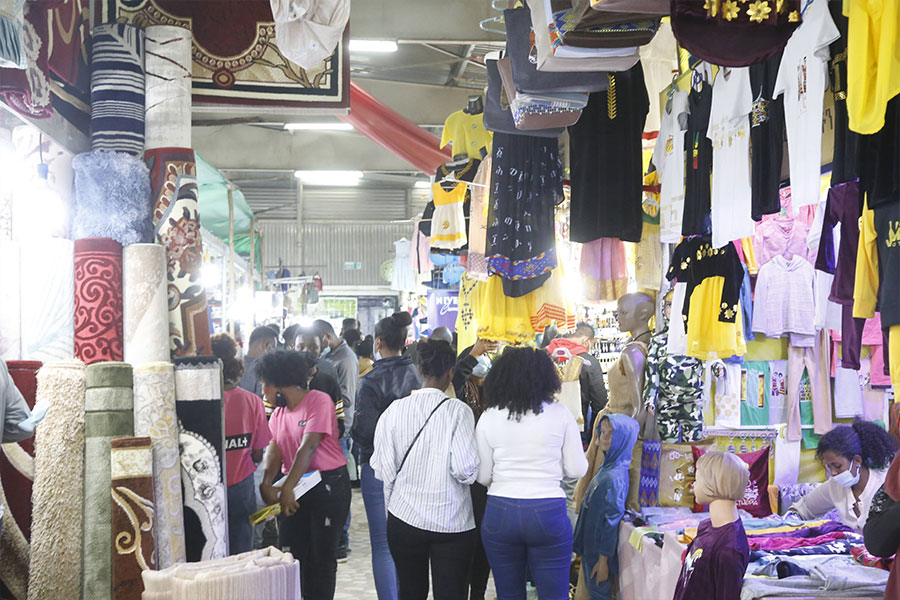
Featured | Sep 04,2021
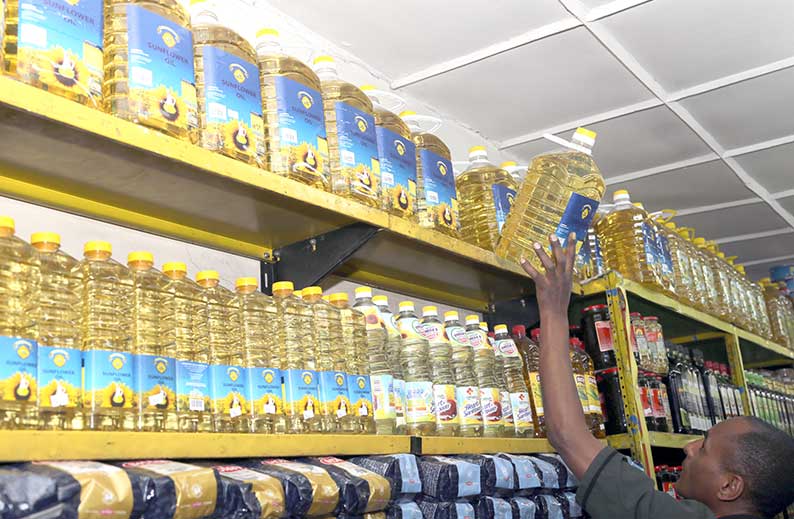
Fortune News | Nov 23,2019
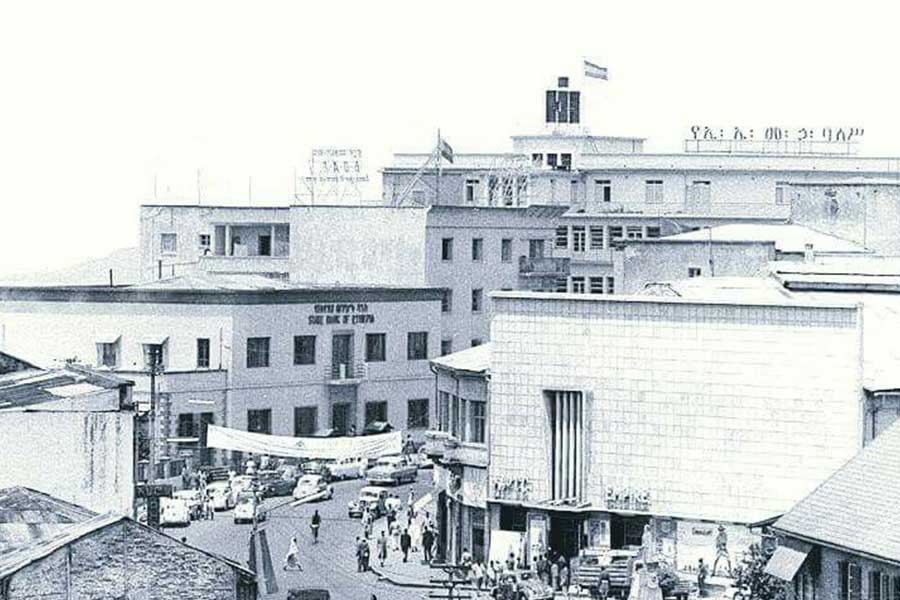
View From Arada | Feb 13,2021


Fortune News | Apr 22,2022
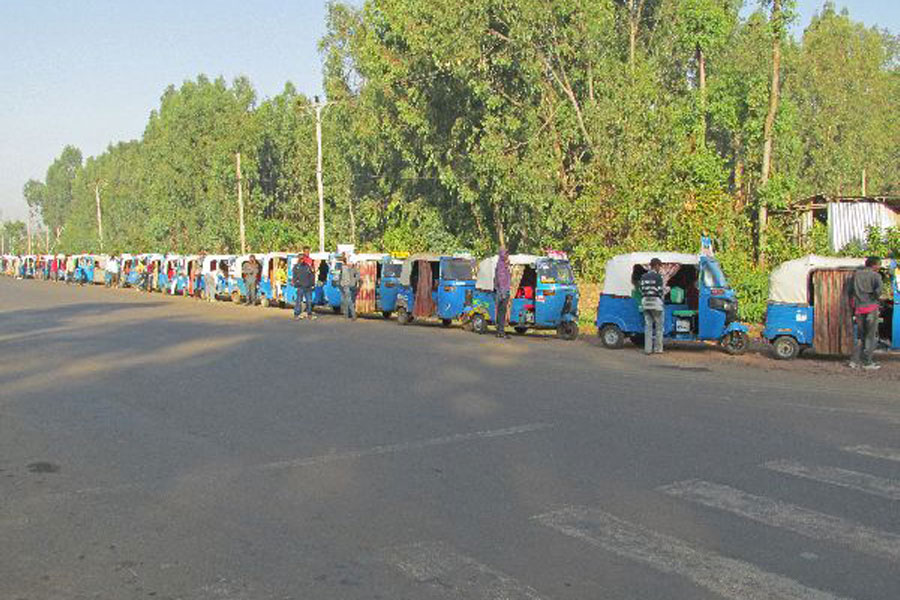
Fortune News | Feb 04,2023

Fortune News | Nov 02,2019
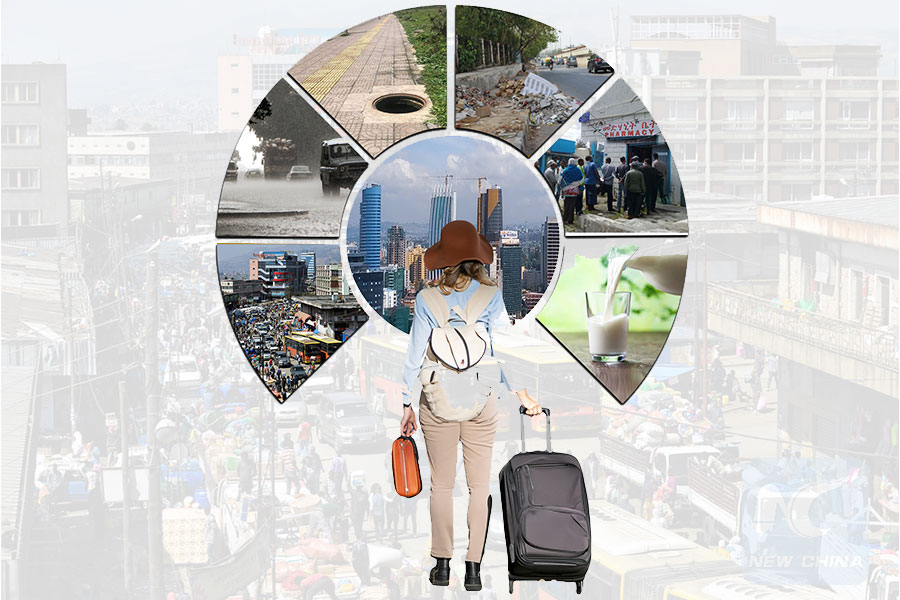
View From Arada | Oct 07,2023
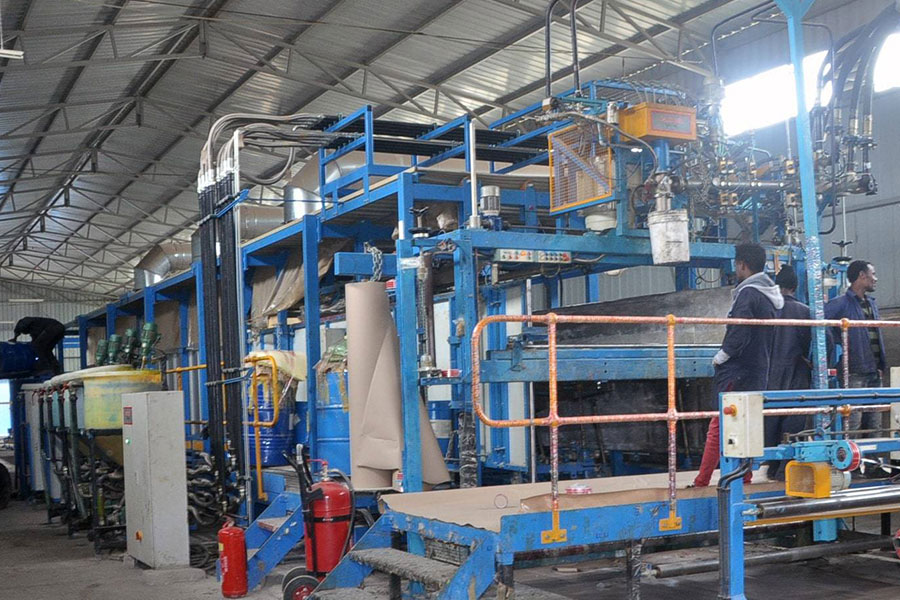
Fortune News | Mar 27,2021

Dec 22 , 2024 . By TIZITA SHEWAFERAW
Charged with transforming colossal state-owned enterprises into modern and competitiv...

Aug 18 , 2024 . By AKSAH ITALO
Although predictable Yonas Zerihun's job in the ride-hailing service is not immune to...

Jul 28 , 2024 . By TIZITA SHEWAFERAW
Unhabitual, perhaps too many, Samuel Gebreyohannes, 38, used to occasionally enjoy a couple of beers at breakfast. However, he recently swit...

Jul 13 , 2024 . By AKSAH ITALO
Investors who rely on tractors, trucks, and field vehicles for commuting, transporting commodities, and f...

Oct 4 , 2025
Eyob Tekalegn (PhD) had been in the Governor's chair for only weeks when, on Septembe...

Sep 27 , 2025
Four years into an experiment with “shock therapy” in education, the national moo...

Sep 20 , 2025
Getachew Reda's return to the national stage was always going to stir attention. Once...

Sep 13 , 2025
At its launch in Nairobi two years ago, the Africa Climate Summit was billed as the f...